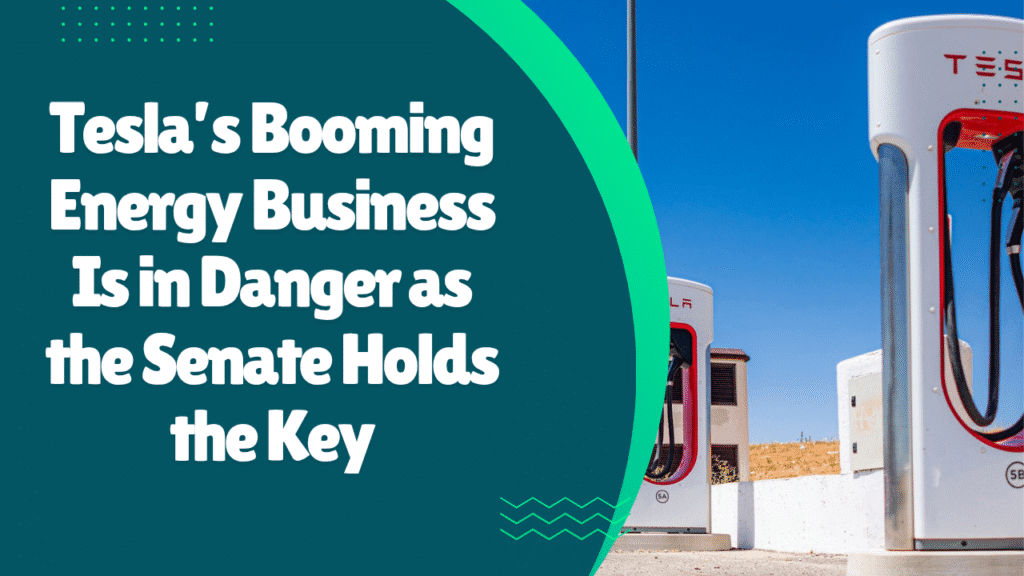Tesla, long seen as a clean energy pioneer, now finds its fast-growing energy division in serious trouble. And this time, the threat is coming straight from Capitol Hill.
For over a decade, Tesla has benefited from government support like a 2009 federal loan and billions in emissions credits. These policies helped generate about a third of Tesla’s 32 billion dollars in profit since 2012. But now, one of its strongest divisions, Tesla Energy, could be forced to slow down just as it’s gaining speed.
Last week, House Republicans passed a bill aimed at dismantling major parts of the Inflation Reduction Act. That includes tax credits for home solar systems and clean energy projects — the very tools that have fueled Tesla’s recent success. The bill is now in the hands of the Senate. If passed without changes, it could hit Tesla Energy hard.
In the last quarter alone, Tesla Energy generated 2.7 billion dollars in revenue, a 67 percent increase from the same time last year. That growth depends heavily on clean energy tax credits. Without them, the company’s momentum could stall.

With Elon Musk stepping away from political involvement, Tesla has turned to its official account on X to speak directly to lawmakers. The company wrote:
“Abruptly ending the energy tax credits would threaten America’s energy independence and the reliability of our grid. We urge the Senate to enact legislation with a sensible wind down of 25D and 48e.”
These credits known as 25D for homeowners and 48e for developers — currently allow people to claim 30 percent of solar and clean energy costs back. They are set to run through 2032, but the new bill would cut them off in 2028 and require projects to begin construction within just 60 days of the bill’s passage.
Tesla warns this move could block more than 60 gigawatts of new energy capacity each year. That capacity is crucial for supporting the growing demand from AI data centers and domestic manufacturing.
Clean energy is booming across the United States. In 2024, 93 percent of new power generation came from solar and energy storage. New natural gas projects are tied up in long wait times. Meanwhile, solar farms can be built and activated in under two years.
Like many companies in the sector, Tesla’s energy business depends on policy. And as lawmakers consider rolling back the Inflation Reduction Act, the market is reacting. Solar stocks are already falling. Enphase is down 45 percent, Sunrun has lost 25 percent of its value, and First Solar is down 15 percent.
Tesla’s clean energy vision is at a turning point. The Senate now faces a choice. Support this progress, or risk slowing down one of America’s most promising paths to energy independence.
Also Read : Google Photos just got a big makeover and it’s packed with cool new AI tricks

